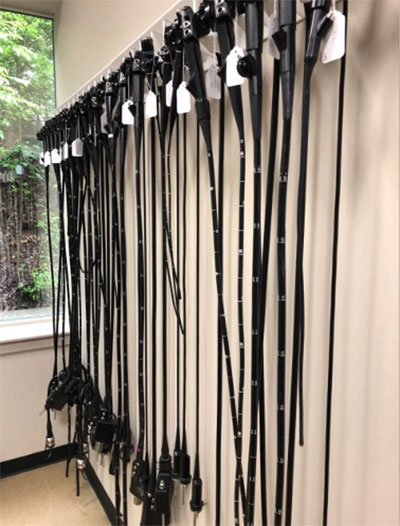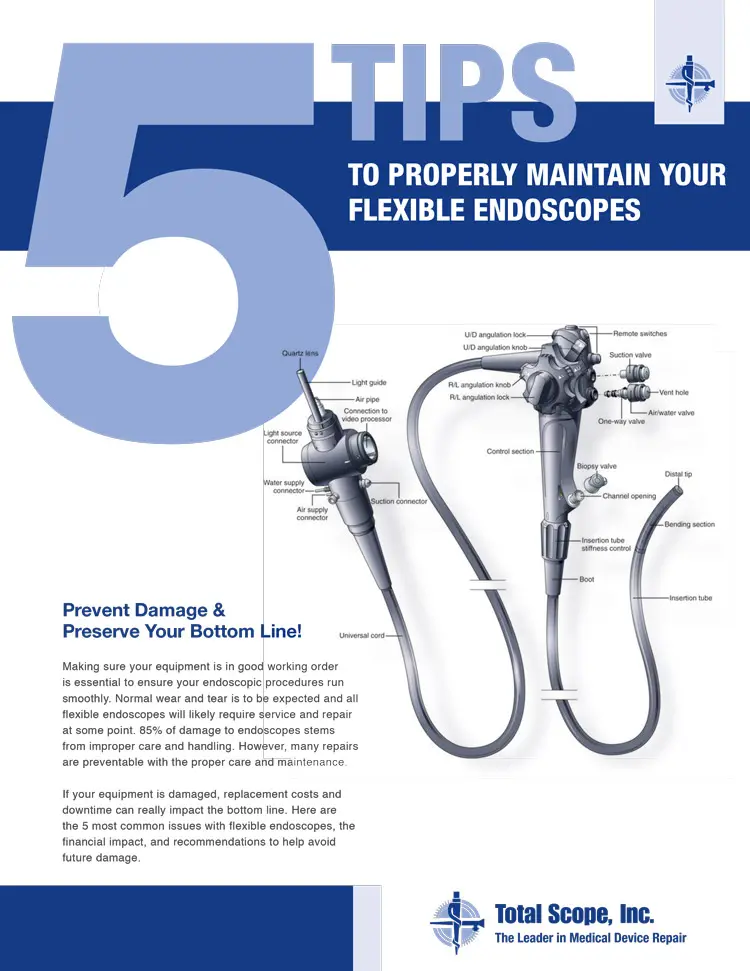Endoscopes are very fragile pieces of equipment, so it is crucial that you handle them with the utmost care. If you take care of them properly, you can have quite an impact on their lifespan.
It is essential to store your endoscopes properly between procedures. Failure to do so can cause bacterial contamination and/or damage, resulting in unnecessary repair costs for you. As long as you adhere to the following protocols, you can expect your scope to remain in good quality condition, thus extending its lifespan.
Cleaning Your Scopes
Immediately following a procedure, carefully transport the soiled endoscope by gently placing it in a large, clean container. Make sure the container is large enough so the endoscope doesn’t coil too tightly and cause internal damage. Always transport the endoscope separately from other instruments, especially sharp instruments that may damage the scope externally.
Note that it is important to close the container to avoid any potentially infectious organisms from being exposed to the environment. From there, the endoscope is pre-cleaned, which starts the process of decontamination.
Store it Properly

Hang the endoscope in a vertical position making sure to remove caps, valves and any other components that are detachable. This prevents moisture accumulation which can cause bacterial growth.
It is also vital to allow ample space between other devices. Overcrowding of equipment increases the risk of damage caused by contact. The distal tip is extremely susceptible to damage so always be mindful when it comes to handling and storage.
Never place or stack your scopes on a counter or in a container to dry. Endoscopes must hang freely in a clean, well-ventilated and dust-free area. This will ensure that the endoscope will keep dry and free of any microbial contamination. If the endoscope is not dry before use, it must be reprocessed.
Otherwise, allow the scope to stay in storage until the next procedure.
Here’s to a Long Life For Your Scopes!
Following these protocols will reduce some of the most common repairs, thus saving you from unnecessary & avoidable repair costs! When you do need repairs, Total Scope offers reliable and fast endoscope repair services.
You may also be interested in our 7 steps to reprocess your endoscopes.
 FREE SHIPPING Anywhere in the Country for Repairs
FREE SHIPPING Anywhere in the Country for Repairs